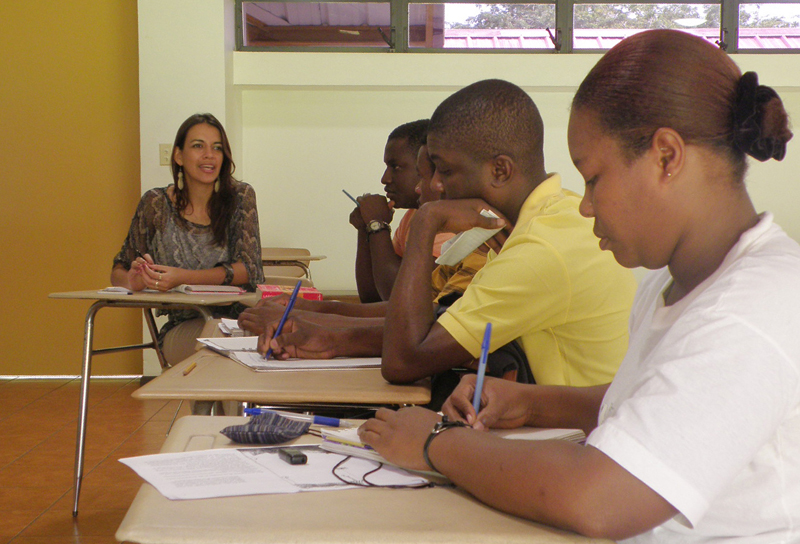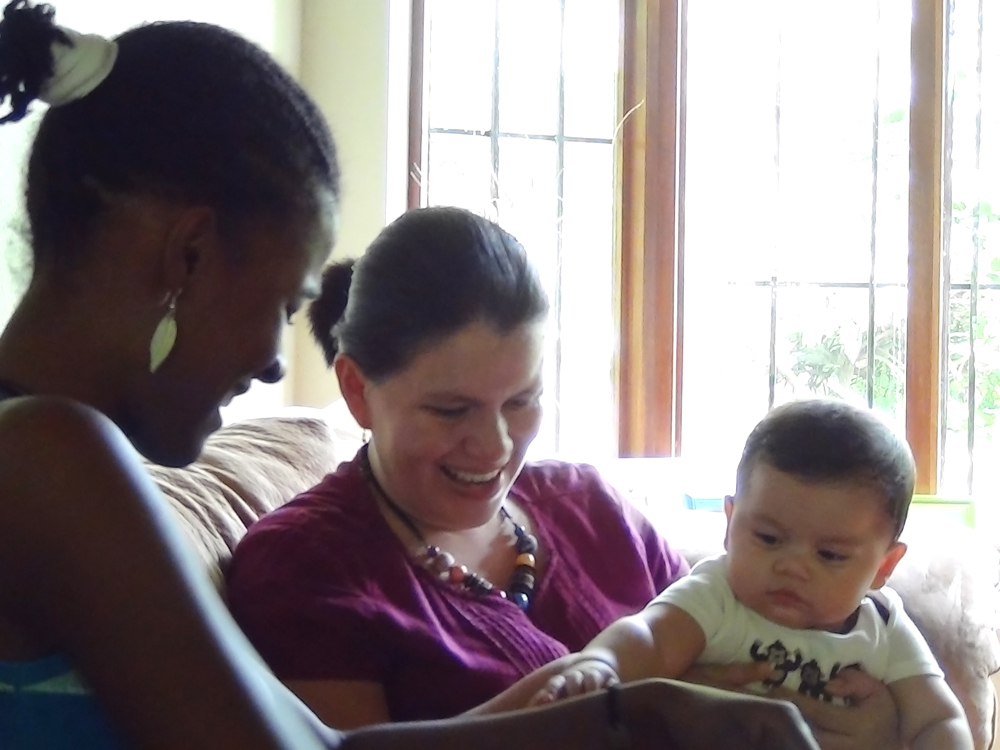Intensive Spanish Program at EARTH immerses new students in Tico culture
By Vanessa I. Garnica
November 21, 2011
Two months ago, Stéphanie Andressol, a 21-year old young woman from Jérémie, Haiti bravely stepped on a plane for the first time in her life, leaving behind her country and loved ones for a chance of a better future. As one of the more than 100 students accepted into EARTH’s 2012 entering class, Stéphanie decided to come to Costa Rica to pursue her love for agriculture and become a leader of change for her country.
“When I was in Haiti I thought ‘How am I going to be in a place where I do not know a single person and where there is a different culture from mine,’” Stéphanie explained. “When I arrived here I was welcomed by two current Haitian students. Our welcome was very good. At that very moment I realized I was going to be okay in Costa Rica.”
In recent years, EARTH has had significant growth in the number of students being admitted from non-Spanish speaking countries, particularly in Africa and the Caribbean. In an effort to help prepare these students with the basic Spanish language skills required to be successful, this year the University started an intensive Spanish language and cultural immersion program. The program which began in September has 27 students from 10 non-Spanish speaking countries.
“When I arrived I did not have opportunities to speak French. I had to understand everything in Spanish and everything I wanted to say had to be in Spanish,” Stéphanie said with a big smile. “It took a lot of effort. I felt very stressed when I could not understand [what people said] so I worked very hard to learn Spanish.”
The students participating in the Spanish Program take intensive classes focused on conversational Spanish in the morning in small groups of approximately five students per class. In the afternoon, the students participate in workshops with recreational activities on diverse topics such as the arts, educational psychology and leadership. There, the group of students also gets to practice their Spanish and learn about other cultures and countries.
One of the integral parts of the program is that each student is living off-campus with a Costa Rican family during the three-months prior to the start of classes in January 2012. In addition, students will continue to receive Spanish language courses and academic support throughout their first year at EARTH.
 “As EARTH becomes more global, this is part of our commitment to making sure that every student is given the support they need to be successful,” remarked Guillermo Navarro, Academic Dean at EARTH.
“As EARTH becomes more global, this is part of our commitment to making sure that every student is given the support they need to be successful,” remarked Guillermo Navarro, Academic Dean at EARTH.
Students and host families bond over food
“What we did immediately was introduce her to traditional food from Costa Rica,” explained Maria del Mar Prendas, Stéphanie’s host-mother. “In fact, she has already eaten tamales, which are usually just eaten at Christmastime.”
Maria del Mar and her husband Carlos Cerdas are both EARTH employees and, along with sons José (15 years old) and Gabriel (six-months), say that they see Stéphanie as one more member of the family.
“This has been an interesting experience because it has been a period of a lot of adjustment for Stéphanie as well as for us,” explained Carlos, who mentioned that they have automatically included Stephanie in their holiday travel plans. “It means trying to find a way to adapt in sync. And at the same time, trying to identify the things that make her feel well and support her through the adaptation process.”
Another student who is participating in this new program is Joaquím Paulo Cuvaca from Mozambique, whose native language is Portuguese.
Joaquím, who arrived in Costa Rica two weeks ago, is living with a family in the county of Siquirres, near the University.
“It is a very good experience because I am learning different things everyday such as new food and how people act here,” the young Mozambican said.
Although Joaquím admits he has had trouble sleeping due to the change in time zones (Mozambique is eight hours ahead of Costa Rica), he feels like he is adapting well to EARTH and life in Costa Rica.
“All of the students here… we are a family. We are all going through the same thing,” explains Joaquím, who added that these tight bonds are helping him miss home a little less and remain focused on why he has traveled so far to become an EARTHiano.




